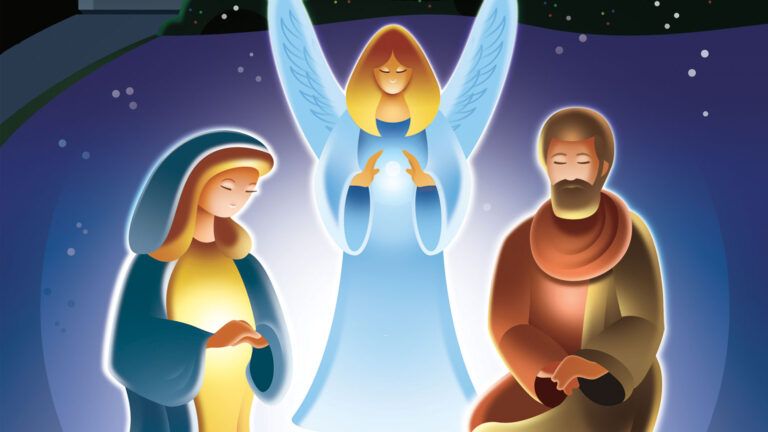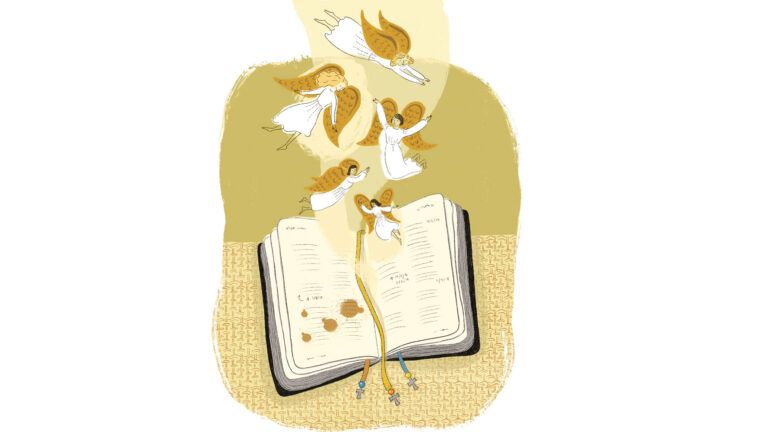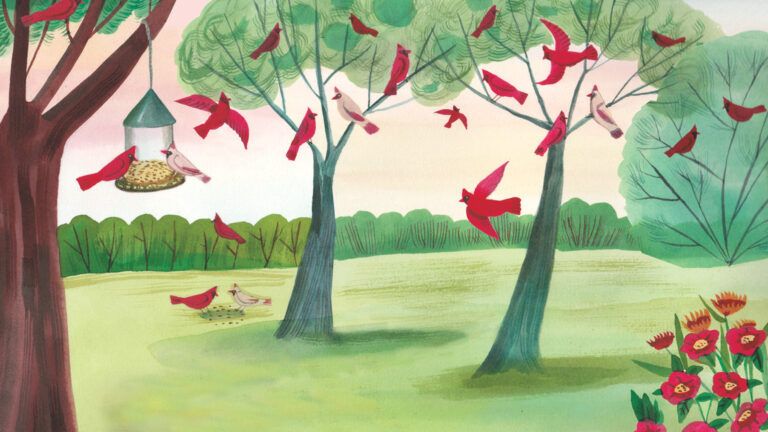I come from a family of rescuers. My two sons are officers in the military—one in the Army, the other in the Coast Guard. They come to the aid of those in need every day. You could say it’s in their DNA. My Dad was a “lifer.” He served first in the Navy during World War II, and then the Coast Guard, where he spent the remainder of his military career conducting dangerous air search and rescue missions for lost mariners. But the most important rescue mission was one that my family, more than 60 years later, still calls a miracle.
It happened in December of 1954, a week before Christmas. I was five years old. My sister, Joanne, was eight, and my brother, Jim, was two. Our home was in full holiday mode. The tall fir tree was trimmed to perfection. The aroma of baking filled the house. Preparation for our annual Italian Christmas Eve tradition, the Feast of the Seven Fishes, was underway. It would be our first Christmas in our new home in Canada, and excitement was in the air.
A few months earlier, Dad had been transferred from Massachusetts to a U.S. Naval base in Argentina, a town off the southern coast of Newfoundland. He worked four days on base. We kids were always in anticipation of his arrival home.
We lived a ferry ride away from the base, in a two-story, boxy white house in the fishing village of Placentia. It was quite a departure from the world we were accustomed to— cold, gray and barren. The winters were brutal even by New England standards. Mom reassured us that all was well and that we were on a special adventure. She managed to make our little house feel warm and welcoming, even for the other military families too. That Christmas, though, Dad was on duty. We weren’t sure he’d make it home in time to celebrate with us.
My dad never talked about his missions in front of us—maybe he didn’t want to frighten us. He was a hydraulic specialist and aerial navigator, often flying in the worst of conditions. Even as kids, we knew his work was dangerous, especially in the winter months, though Mom was good at hiding her concerns.
Snow fell three days before Christmas, covering the barren ground with a lovely white carpet. The temperature was just cold enough to freeze all the nearby ponds. School had let out early that day, and Joanne was home by noon. She told Mom that all her friends from school were going ice-skating. She wished she had some skates, so she could join them. At those words, Mom pulled a present from under the tree and handed it to my sister. An early Christmas gift— skates! Joanne wasted no time. “Can I go skating now?” she asked excitedly. “Yes,” Mom said, “but be careful and be home for supper.”
Bundled in her heavy winter coat, hat and mittens, Joanne flew out the door. She headed toward a popular skating pond close by, where her friends had already gathered to spend the afternoon. It was a perfect day for skating, chilly and clear. The sun reflected off the ice like diamonds. Joanne worked hard to steady herself on the skates. Undaunted by her multiple tumbles, she finally made it from one side of the pond to the other. She was having so much fun mastering her new skill that she lost track of time, not realizing that all her friends had gone home. It was getting dark, and Joanne knew she had better head back fast or she’d be in trouble. She reached a remote part of the pond, not noticing the fissures in the ice until it was too late. Then— CRACK! The ice gave way. Joanne’s tiny feet slid out from under her and she plunged into the water.
Surrounded by melting ice, she had nothing to grab. “Help!” she screamed. Her mouth filled with water. Again she tried calling out. It was no use. The pond was deserted. Pure panic set in as the weight of her skates pulled her deeper and deeper. Her body trembled uncontrollably, the freezing water seeping into her heavy coat and the pores of her skin. And then she was gone.
Joanne doesn’t recall how long she was underwater. But suddenly she felt something pulling her out of the icy depths. As she would later describe it, “a great big hand gripped at the back of my coat.” The next thing Joanne knew, she was sitting on the ground by the road that led back home.
She was still wearing her skates. But her boots stood neatly beside her, as if they’d been carefully placed there. She hurriedly changed into them, scarcely able to comprehend what had just happened. Her coat was as dry as a bone. So were her ice skates. Had she imagined falling into the water? Her mittens told the truth, though, as the icy pond water dripped from them. The dark walk home would have been threatening any other time. But that night, it was as if a warmth were surrounding and guiding Joanne.
Mom questioned Joanne as she came in the door, more grateful than cross. “Where on earth have you been?” she said.
“Sorry, Mom, lost track of time,” Joanne said. She took off her coat and scrambled to the dinner table, as if everything were fine. She was torn between sharing her near-drowning and rescue or keeping quiet. What if no one believed her?
The next two days passed by in a blur of holiday activities. The long-awaited Christmas Eve celebration finally arrived. We were all bundles of nerves that afternoon, not knowing if Dad would walk through the door. As we kept vigil by the window, we had one eye on the lookout for him and the other on the gifts. Around five o’clock, we got the best gift of all. Dad walked through the door accompanied by two members of his crew, who would’ve been alone that night had Dad not insisted they join us.
We all gathered around the dinner table as Mom served each of the seven courses. Dad beamed, clearly happy to be home with his family. After dinner, we settled in the living room. Joanne and I sat on Dad’s lap, and he began to tell us an extraordinary story.
“A couple of days ago,” he said, “we were called out to rescue the crew of a Russian ship that was taking on water in the middle of the ocean.”
The room drew to a hush. We’d rarely ever heard him say more than a few sentences about his duties. We were all fascinated.
“Their ship was four hours north of us,” he said, “and it was storming something fierce. We knew the vessel was sinking and that time was of the essence. By the time our plane got to the general vicinity, though, a heavy fog had settled over the sea, making it impossible for us to see anything below.”
The plane’s fuel was getting low, and Dad knew that if they didn’t see the sailors soon, they’d have to go back or risk being in trouble too.
“We have to turn around,” the pilot told Dad with some urgency.
“We’re their only hope,” Dad said. “Let’s give it a few more minutes.”
“Five more minutes,” said the pilot. “But then we’ll have no choice but to turn back.”
Dad paused in his story. “Just as we were about to turn back,” he said, “I asked the Lord to please help us find the sailors. In that moment, it was as if a curtain were being suddenly drawn back. The fog lifted. We could see several men on the ship’s bow, waving flags. The pilot flew the plane overhead, and I lowered the harnesses. As each man ascended to the plane, I reached down and pulled him to safety. Just as the last man climbed aboard, the vessel sank.”
I stared at Dad’s strong hands, picturing him reaching out for those men, bringing them to safety. The strength and courage it must’ve taken took my breath away. Just then, Joanne said in a soft, almost inaudible voice, “I had a miracle too, Daddy.”
She told the room how another pair of powerful hands, just like Dad’s, had plucked her from those icy waters. Hugs and kisses followed.
Was there a connection between Dad’s rescue of those sailors that night and the rescue of his own little girl? Perhaps we’ll never know for sure. But all these years later, when I sit to pray for my sons, inspired into service by their grandfather, I’m not afraid. For I know that whatever they face, they are never really alone. Protected, always, by a father’s hands.
Judy Zwirblis is the author of Treasured Tales of Homeschool: An Inspiration for Parents.






